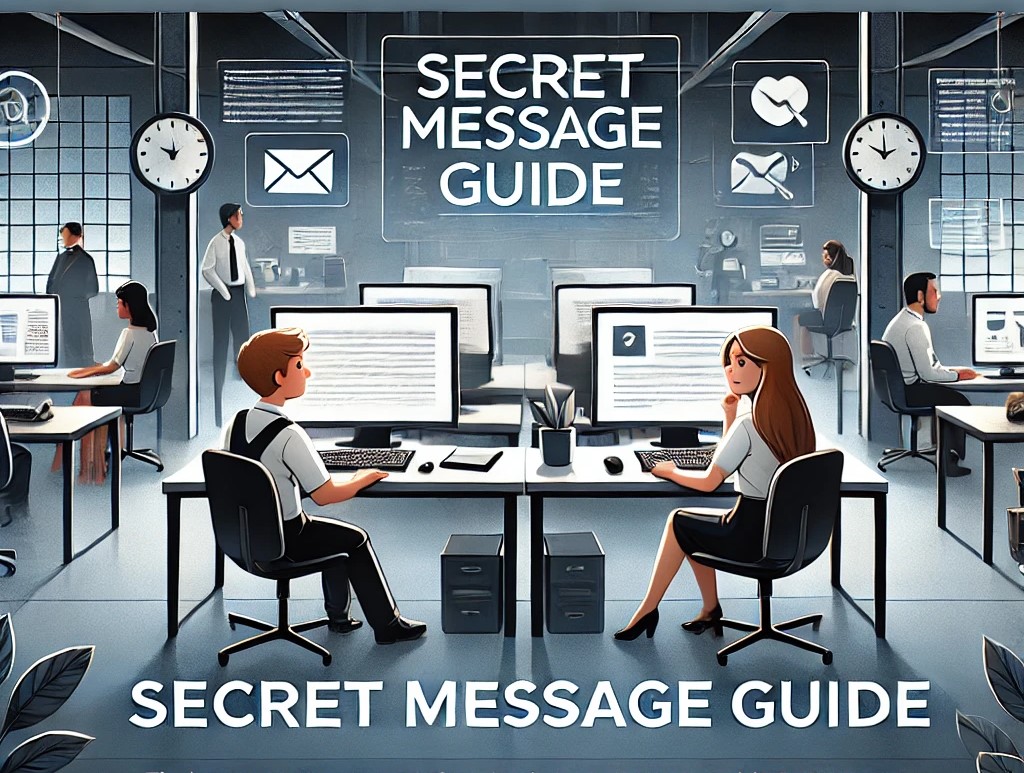Want to share your thoughts or feelings without disclosing who you are? On4t’s Secret Messages service allows you to send messages anonymously to anyone you choose. Whether it’s a confession, feedback, or a surprise message, you can communicate without the worry of exposing your identity.
Our platform is designed with privacy in mind, ensuring that your anonymity is preserved while your message reaches its recipient safely and securely. It’s perfect for those moments when you need to say something important but prefer to stay anonymous.
Why Use On4t’s Secret Messages?
- Complete Anonymity: Your identity is never revealed; not even we can see who you are.
- Secure Delivery: We use advanced encryption to ensure your message is seen only by the intended recipient.
- Ease of Use: Send a message in just a few clicks without any complicated processes.
- Versatile Use: Ideal for personal secrets, confidential feedback, or just for fun.
Note: While anonymity empowers free expression, we encourage the responsible use of our service to maintain respect and privacy.
How Does It Work?
- Write Your Message: Compose your message without the restriction of identity.
- Enter the Recipient’s Details: Add the necessary contact information to ensure your message reaches the right person.
- Send Anonymously: Hit the send button and we’ll take care of delivering your message securely.
Pro Tip: Think carefully about the words you choose. Anonymous messages carry weight, especially when the recipient doesn’t know who they are from.
𝘔𝘰𝘳𝘦 𝘵𝘩𝘢𝘯 3 𝘣𝘪𝘭𝘭𝘪𝘰𝘯 𝘦𝘯𝘤𝘳𝘺𝘱𝘵𝘦𝘥 𝘮𝘦𝘴𝘴𝘢𝘨𝘦𝘴 𝘢𝘳𝘦 𝘴𝘦𝘯𝘵 𝘥𝘢𝘪𝘭𝘺 𝘢𝘤𝘳𝘰𝘴𝘴 𝘮𝘦𝘴𝘴𝘢𝘨𝘪𝘯𝘨 𝘢𝘱𝘱𝘴, 𝘸𝘪𝘵𝘩 𝘵𝘩𝘦 𝘶𝘴𝘦 𝘰𝘧 𝘴𝘦𝘤𝘶𝘳𝘦 𝘢𝘱𝘱𝘴 𝘪𝘯𝘤𝘳𝘦𝘢𝘴𝘪𝘯𝘨 𝘣𝘺 45% 𝘰𝘷𝘦𝘳 𝘵𝘩𝘦 𝘱𝘢𝘴𝘵 𝘵𝘸𝘰 𝘺𝘦𝘢𝘳𝘴 (𝘚𝘵𝘢𝘵𝘪𝘴𝘵𝘢, 2023).
Frequently Asked Questions (FAQs)
Can the recipient reply to my anonymous message?
Currently, our platform does not support replies to keep the sender’s identity completely anonymous.

How do I know the message has been delivered?
You’ll receive a delivery confirmation once the message has successfully reached the recipient.
Is there a limit to how many messages I can send?
There is no limit – feel free to send as many messages as you like.
What measures are in place to prevent misuse of this service?
We monitor the use of our service and adhere to legal standards to prevent and address any misuse.
Conclusion
Anonymous messaging, like what On4t’s Secret Messages offers, provides a unique solution to modern communication challenges. It strips away the baggage of identity, allowing words to stand on their own and be judged purely by their content. While the power of anonymity can be liberating, it also comes with great responsibility.